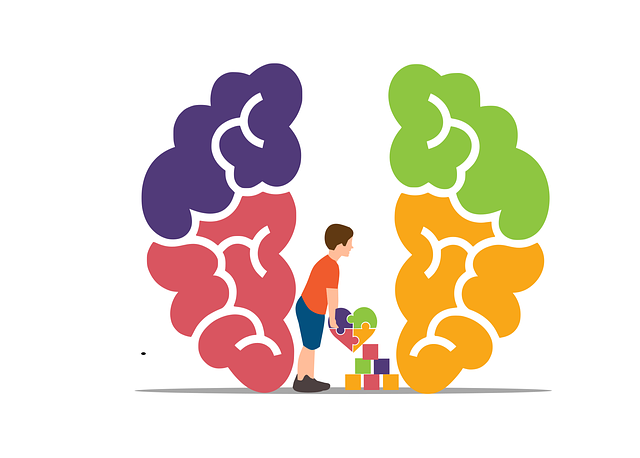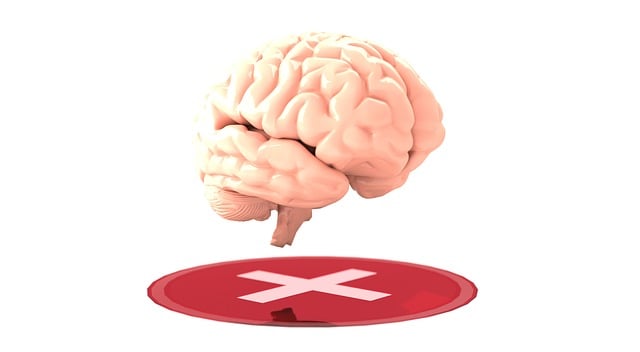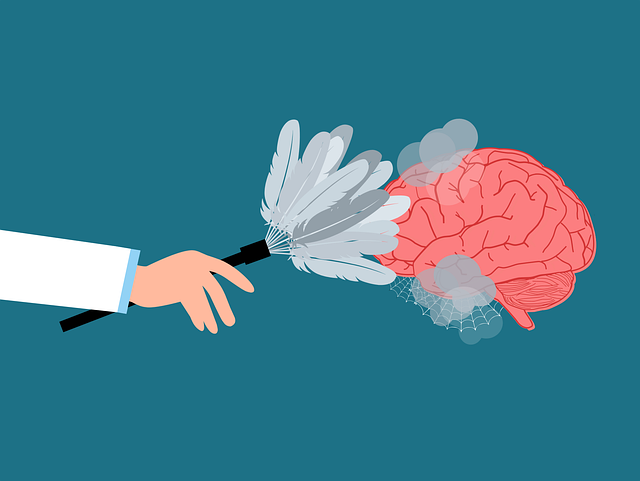Global mental health policies vary due to cultural and socioeconomic factors, but there's a growing focus on early intervention for childhood mental health issues, particularly depression. Organizations like WHO advocate integrated care models combining medical treatment with tailored support services, including therapy, crisis intervention, and long-term mood management. Effective programs also teach confidence-building techniques and promote inclusive environments. Disparities in access to therapy exist due to limited resources, cultural stigma, and lack of culturally sensitive services for underprivileged children and ethnic minorities. Overcoming these barriers requires a multifaceted approach, including self-care routines, culturally sensitive mental healthcare, and mental wellness journaling. A comprehensive framework integrating short-term interventions and long-term system changes is vital, with regular monitoring and data-driven policy adjustments to ensure equitability in service delivery. Advocacy drives policy changes and improves access to quality care for children dealing with rising rates of depression, while innovative service models emphasize early intervention and personalized support, building resilience and self-worth through evidence-based therapy programs.
Mental health policy analysis and advocacy are crucial components in addressing global disparities in children’s access to therapy for depression. This article explores a multi-faceted approach to improving mental health services, encompassing a global perspective on policies, analyzing effective programs, and empowering change through research and collaboration. We delve into the impact of depression on children, highlighting accessibility issues, and propose innovative best practices for optimal treatment. By combining advocacy strategies with evidence-based initiatives, we aim to revolutionize care for young minds grappling with depression.
- Understanding Mental Health Policies: A Global Perspective
- The Impact of Depression on Children: Uncovering Disparities in Access to Therapy
- Policy Analysis Framework: Evaluating Programs and Initiatives for Children's Mental Health
- Advocacy Strategies: Empowering Change through Research and Collaboration
- Best Practices: Innovating Services for Effective Depression Treatment in Children
Understanding Mental Health Policies: A Global Perspective

Mental health policies vary significantly across the globe, reflecting diverse cultural perspectives and socioeconomic contexts. Despite these differences, many countries are recognizing the importance of addressing mental health issues early to prevent severe outcomes such as depression in children. Global initiatives like those from the World Health Organization (WHO) have emphasized the need for integrated care models that combine medical treatment with support services tailored to individual needs. This includes therapy for children suffering from depression, anxiety, and other common mental health disorders.
The effectiveness of mental health policies is often measured by their ability to provide accessible and affordable Crisis Intervention Guidance alongside long-term Mood Management strategies. Confidence Boosting techniques are also integral components in many successful programs, aiming to empower individuals to take control of their mental well-being. By integrating these various approaches, countries can foster more inclusive and supportive environments that promote positive mental health outcomes for all citizens, especially vulnerable populations like children.
The Impact of Depression on Children: Uncovering Disparities in Access to Therapy

Depression among children is a growing concern, with significant impacts on their overall development and well-being. Unaddressed, it can lead to difficulties in school, social isolation, and even long-term mental health disorders. Access to evidence-based therapy is crucial for effective management; however, disparities exist in the availability and accessibility of such treatments for young individuals. Many children from underprivileged backgrounds or ethnic minorities face barriers, including limited resources, cultural stigma, and a lack of culturally sensitive mental healthcare services.
Addressing these disparities requires a multifaceted approach. Encouraging self-care routine development for better mental health can empower children to take an active role in their well-being. Additionally, promoting cultural sensitivity in mental healthcare practice ensures that therapeutic interventions are tailored to diverse cultural backgrounds, fostering trust and engagement. Mental wellness journaling exercises guidance can also be beneficial, offering a safe space for children to express their feelings and track progress.
Policy Analysis Framework: Evaluating Programs and Initiatives for Children's Mental Health

In evaluating children’s mental health policies and initiatives, a comprehensive framework that considers both short-term interventions and long-term system changes is essential. This includes assessing the impact of programs like therapy for children with depression, while also looking at broader factors such as self-care routine development for better mental health among youth. By employing a multi-dimensional approach, policymakers can identify successful strategies and areas needing improvement. A robust policy analysis should incorporate risk assessment for mental health professionals to mitigate burnout prevention concerns, ensuring the sustainability of these initiatives over time.
The framework must also account for cultural sensitivity, accessibility, and equitability in service delivery. Regular monitoring and feedback mechanisms are crucial to understanding the effectiveness of interventions, especially when addressing rising mental health challenges among children. This method allows for data-driven policy adjustments, ensuring resources are allocated efficiently to support young minds and foster their overall well-being.
Advocacy Strategies: Empowering Change through Research and Collaboration

Advocacy plays a pivotal role in shaping mental health policies and ensuring accessible, quality care for all, especially children. Effective advocacy strategies involve leveraging research and fostering collaboration among various stakeholders. By conducting thorough research on emerging trends, such as the increasing prevalence of depression in youth, advocates can present compelling data to policymakers. This evidence-based approach highlights the need for improved therapy options tailored for children, including innovative coping skills development programs.
Collaboration between mental health professionals, researchers, community leaders, and policymakers is essential. Joining forces allows for a comprehensive understanding of cultural sensitivities in mental healthcare practice, ensuring services are inclusive and effective across diverse populations. Furthermore, advocacy groups can collaborate on awareness campaigns that promote mental wellness, boost confidence in seeking help, and reduce the stigma surrounding childhood depression. This collective effort empowers change by integrating research insights into actionable policy recommendations.
Best Practices: Innovating Services for Effective Depression Treatment in Children

In addressing depression among children, best practices in mental health policy advocate for innovative service models that go beyond traditional therapy. These approaches recognize the importance of early intervention and tailored support to meet the unique needs of young minds. One such strategy involves integrating crisis intervention guidance into routine healthcare settings, ensuring accessibility and timely support for children experiencing depressive symptoms. By training primary care providers with risk assessment tools, mental health professionals can be proactively identified, and appropriate interventions can be swiftly implemented.
Moreover, building resilience and confidence among children is a game-changer in depression treatment. Policy makers should encourage evidence-based therapy programs that focus on strengthening coping mechanisms and fostering a sense of self-worth. These strategies not only target the symptoms but also empower children with long-lasting tools to navigate mental health challenges, enhancing their overall well-being and future resilience.
Mental health policy analysis and advocacy play a pivotal role in addressing depression among children, particularly in disparities related to access to therapy. By employing a robust policy analysis framework, we can evaluate existing programs and initiatives, identifying best practices that drive innovative services for effective depression treatment. Through collaborative advocacy strategies, we empower change by leveraging research to influence policies that ensure every child receives the mental health support they need. Ultimately, this holistic approach aims to improve global access to therapy for children struggling with depression.













